The Best Foods to Dehydrate For Long-Term Storage

We are talking about dehydrators and the best foods to dehydrate. I've had my dehydrator for about ten years. It couldn't be a better time to start dehydrating and preparing with everything happening right now, with shortages forecasted for this year.
Get a dehydrator
The first thing is to get yourself started. A very basic dehydrator is excellent. They are inexpensive now, but I would say probably stay away from the ones that have the little plastic trays because if you want something that potentially lasts your lifetime, consider going with the ones that have a metal shelf.
About dehydrating
You can dehydrate any fruit or vegetables you want, and it's very simple. You can do or wouldn't want to do some things, but as the logic prevails, you can dehydrate most fruits and vegetables.
Dehydrating fruit and vegetables preserves most of your nutritious value in whatever you're dehydrating because you're cooking this low and slow. It keeps all the nutrients in there.
Do dehydrated items taste good?
People ask, do those things taste as good as they are fresh? They don't taste the same, and the texture is different. However, don't forget that you're dehydrating for long-term storage.
Things like mushrooms and leeks come up well. Everything that you will then rehydrate will have a different texture and different flavor. However, the flavor is sometimes more concentrated than fresh fruit and vegetables.
How long does it take to dehydrate something?
There are guidelines online or in the manual. If you have a dehydrator, it will tell you that roughly it will take six to ten or six to 8 hours to dehydrate a lemon. It all depends on the size of your lemon, how thick you cut your lemon, and your dehydrator.
On average, everything will take between eight and sometimes up to 24 hours. It does depend on what you are drying, but it's ready when it's ready. You can't hurry this by turning up the temperature because that means you'll cook your product and potentially lose the nutritional value by speeding it up. So be patient.
After dehydrating
I usually set my dehydrator first thing in the morning, and I let it sit there, then I turn it off in the evening and let it sit switched off overnight so it's fully cooled.
You have to condition your storage jar. After you put your fruit and veg in the jar, you have to leave this and keep an eye on the jar.
Every day for a few days, you check and make sure the things don't stick together, or there is no condensation appearing, like, on the inside of the lid of the jar, because any tiny bit of moisture that's left in there will spoil your whole jar.
Skipping this step could cost you a big time. There's a lot of time and a lot of money wasted.
What not to dehydrate
Never dehydrate smelly things, like smelly vegetables, with fruit or other vegetables. The worst I found is onions, mushrooms, leeks, and anything vegetable-wise; it has a strong smell.
Indeed, do not put any fruit with any of your vegetables or mushrooms because it will ruin the whole thing.
Some things shrink more
Some things will shrink more than others as they dehydrate. Lemons, oranges, strawberries, leeks, and carrots do not shrink too badly.
Kiwis dehydrated well; I've got them here with the oxygen absorber. They are so tasty, and they've got so many benefits. The worst shrinkage I've found came from peppers. Peppers seem to dehydrate, and they just become nothing.
Be aware of color changes
If you dehydrate green vegetables like broccoli, it works well and rehydrates well. I usually add them to pasta. It works well if I'm making broccoli pesto pasta with peas. You've got to blanch the broccoli first to keep the color.
The same goes for carrots; you must submerge them in simmering water for a minute or so. It will preserve your color.
Storing your vegetables or fruit
Most of the things I dehydrate are used within a medium time frame, apart from things like kiwis, because I put an oxygen absorber in there. They will stay in the back of my cupboard.
Stuff you use regularly is fine to go in the glass jars just with a little clip-top lid or in a regular jar with a normal lid. If you want to keep the stuff longer, I strongly suggest getting one of those vacuum sealer attachments.
Generally, your herbs, fruit, and veg will last, provided you keep them in cool and dark storage. Just don't forget when you vacuum fragile stuff like spinach, you'll end up with spinach powder because the vacuum will crush the leaves.
Crushing it makes it become a powder. If I'm not sure what I will do with spinach, I can make it into the powder; then you can add it to shakes, soups, and stews or sneak it into your kid's diet somehow. You can do this with many, many things.
What to dehydrate
One of the main points for choosing what to dehydrate is only to dehydrate what you're going to eat or what your family will eat. It's pointless for me to dehydrate kale because if I don't eat kale fresh, I won't eat it dry. So pick exactly what you like eating or know you can do something with and then dehydrate that.
Not everything will become the same consistency when it's dry. Some things like apples or pears or tomatoes will never be bone dry. They're always going to have some moisture-retaining in. Those kinds of things you cannot put in a vacuum because anything that's more than 10% moisture, you vacuum up, and you risk having bacteria grown in there.
The best foods to dehydrate
If you want to start dehydrating, it's a good time to start. Have you started dehydrating anything yet? Share what you've been dehydrating and any tips you have in the comments below.
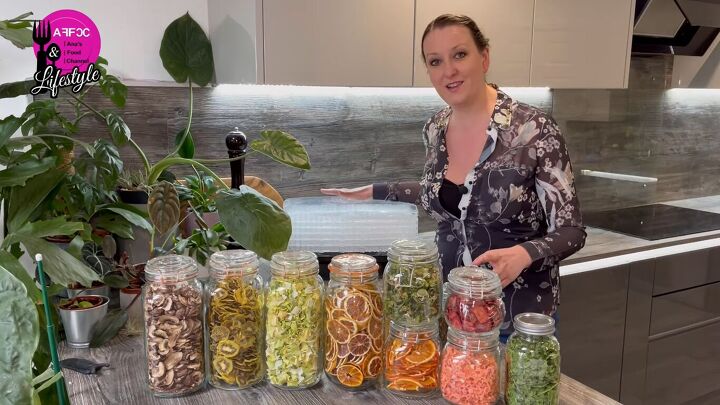







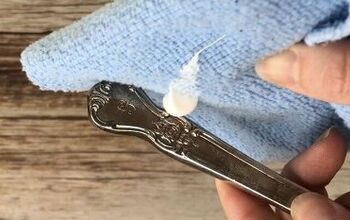




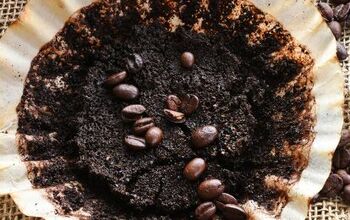


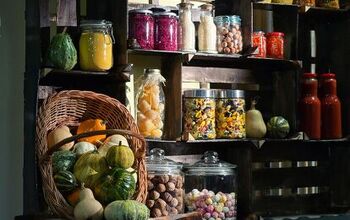
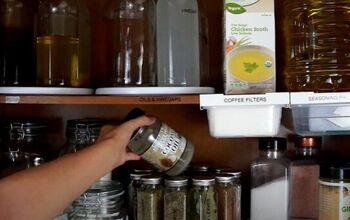



Comments
Join the conversation
I started with mushrooms. They do well. I didn't like how my green peppers turned out, though. My son dehydrates lots of fruits for chips and his family really likes using the dehydrator. It gives you another option.
Most, if not everything, I dehydrate is for my dog. I've made chicken jerky, sweet potatoes, apples, bananas, etc. I tried dehydrating regular potatoes, thinking that's what comes in boxed scalloped potatoes but, they turned brown and I tossed them. The boxed stuff must be flashed frozen or whatever the term is. I did read, just now, that cooking them will alleviate this problem but, I have more reading to do.